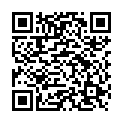|
|
|
| Module code: EE-K2-513 |
|
|
2V (2 hours per week) |
|
2 |
| Semester: 5 |
| Mandatory course: no |
Language of instruction:
German |
Assessment:
Written or oral exam
[updated 23.11.2020]
|
DFMEES-111 Electrical Engineering - Renewable Energy and System Technology, Master, ASPO 01.10.2019
, semester 1, mandatory course, non-technical
E1550 (P211-0008) Electrical Engineering, Bachelor, ASPO 01.10.2012
, optional course, non-technical
EE-K2-513 (P211-0008) Energy system technology / Renewable energies, Bachelor, ASPO 01.10.2012
, semester 5, optional course, engineering
EE-K2-513 (P211-0008) Energy system technology / Renewable energies, Bachelor, ASPO 01.04.2015
, semester 5, optional course, engineering
E2532 (P211-0008) Electrical Engineering and Information Technology, Bachelor, ASPO 01.10.2018
, optional course, non-technical
|
30 class hours (= 22.5 clock hours) over a 15-week period.
The total student study time is 60 hours (equivalent to 2 ECTS credits).
There are therefore 37.5 hours available for class preparation and follow-up work and exam preparation.
|
Recommended prerequisites (modules):
EE303
[updated 16.07.2015]
|
Recommended as prerequisite for:
|
Module coordinator:
Prof. Dr. Michael Igel |
Lecturer:
Prof. Dr. Michael Igel
[updated 16.07.2015]
|
Learning outcomes:
After successfully completing this course, students will be familiar with the fundamentals of the field, as well as the energy industry and the associated combination of technology and economics.
In addition, students will be able to:
- describe the entire chain of energy supply from the production, conversion, transmission and distribution to the supply of electrical energy and natural gas to the consumer
- explain technological-economic interrelationships and acknowledge them from the perspective of energy law
- explain the structure of the German energy market and the terms used in the energy industry
- calculate individual electricity supply contracts and demonstrate the importance of risk management for the energy industry
[updated 23.11.2020]
|
Module content:
1. Primary energy market
2. Procuring grid-bound energy
3. Energy law framework
4. Transmission and distribution of energy
5. Price factors and price systems in the energy industry
[updated 23.11.2020]
|
Recommended or required reading:
Konstantin: Praxisbuch Energiewirtschaft
Schiffer: Energiemarkt Deutschland
Dittmann; Gnüchtel; Stamer; u.a.: Energiewirtschaft
VDEW: Energierecht, Ergänzungsband zur EnWG-Novelle
[updated 23.11.2020]
|


